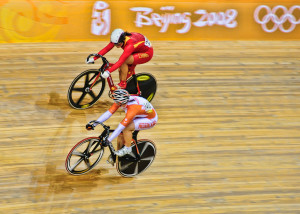(Let’s) get going / get to work! [Dutch phrase of the week] ![]()

This phrase can be used to encourage people to start with an activity right away, or as an announcement that you (all) are going to get busy. The activity is usually involves serious effort such as studying or work.
You can also use the phrase with the verbs "zijn" and "gaan". You will use "aan de slag zijn" for being in a work related activity or "having a job" (informally). Alternatively you can use "aan de slag gaan" for going to start an activity or "starting a job" (informally). Check out the example sentences.
Note that you will mostly hear the word "slag" used in its translation of "blow/stroke/strike" or "battle".
Examples:
– "Jongens het is al half 9 geweest, open je boek op pagina 16 en aan de slag!"
("Guys, it’s past 8.30 now, open your book at page 16 and let’s get going!")
– "Ok mensen, de koffie is op, aan de slag!"
("Alright people, we have finished our coffee, let’s get to work!"
– "Na drie weken vakantie ga ik morgen weer aan de slag; jammer!"
("After three weeks of holiday, I’m getting back to work tomorrow; too bad!)
– "Zal ik jullie morgen komen helpen?" – "Nou graag, maar we gaan wel al om 8 uur aan de slag!"
("Shall I help you out tomorrow morning?" – "Well, please do, but mind that we will be starting at 8!")
– "Het was gezellig om weer bij te kletsen, maar nu is het tijd om weer aan de slag te gaan!"
("It was really nice to catch up again, but now it’s time to get back to work!")
– "Chantal zoekt al heel lang een baan. Ze ziet er echt naar uit om weer aan de slag te gaan."
("Chantal has been looking for a job for quite some time now. She is really looking forward to getting back to work.")



 The word “medaille” is the topic of conversation on Dutch sport news these days, and probably not only in the Netherlands 🙂 Even though a small country, the Dutch participate in many sports at the Olympics, ranging from sailing to fencing. Sometimes we see Dutch sportsmen/women competing who we have never heard of!
The word “medaille” is the topic of conversation on Dutch sport news these days, and probably not only in the Netherlands 🙂 Even though a small country, the Dutch participate in many sports at the Olympics, ranging from sailing to fencing. Sometimes we see Dutch sportsmen/women competing who we have never heard of!
